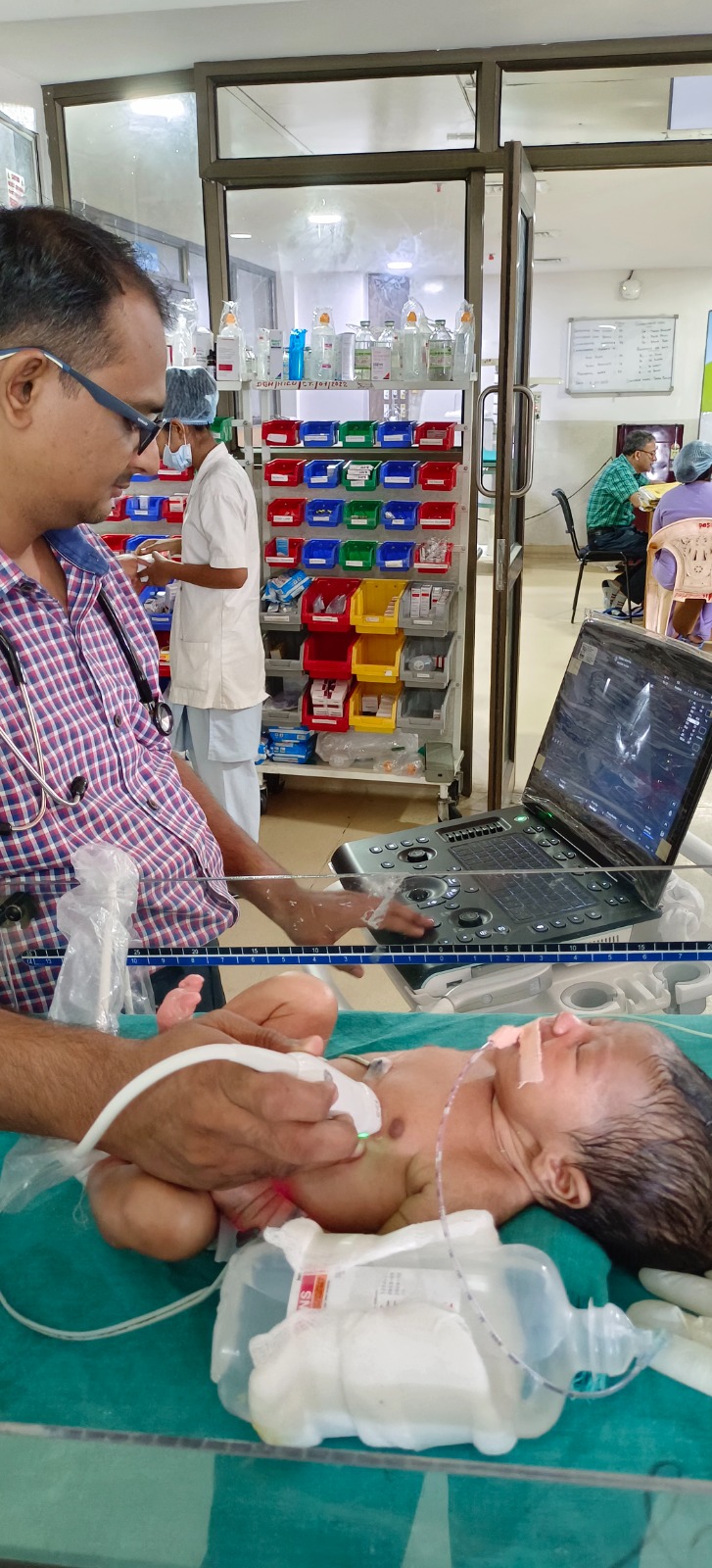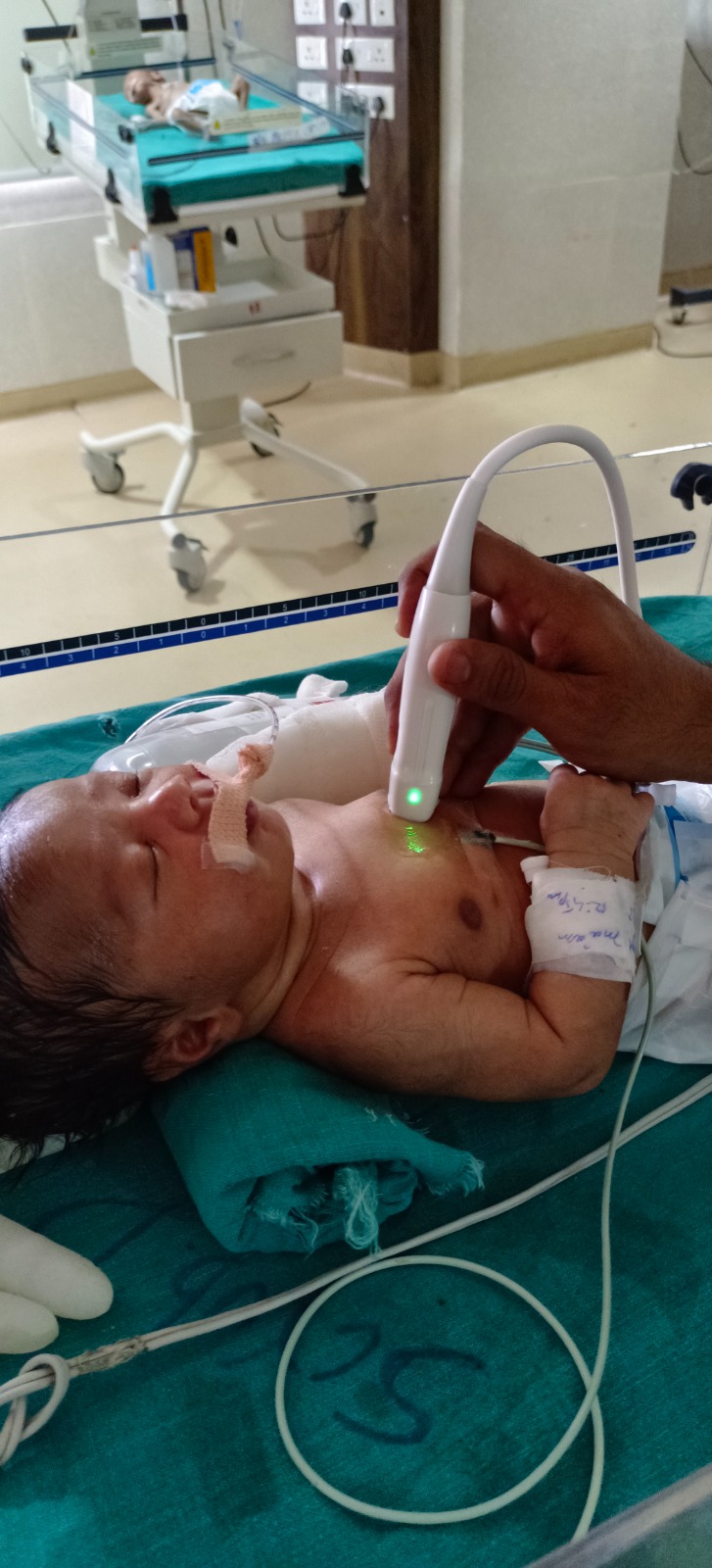Targeted Neonatal Echocardiography :- a friend in need!
Recently, more and more pediatrician/ neonatologist are becoming interested in performing bedside echocardiography for hemodynamic assessment. Terms like functional echocardiography and point-of-care echocardiography or targeted echocardiography have been introduced to describe the use of echocardiography as an adjunct in the clinical assessment. It is becoming more and more easy due to miniaturizing of technology for echocardiography( echo).
However, in India due to strict prenatal sex determination laws it is not possible to perform bedside neonatal echo if treating hospital does not have portable echo machine( which is still very costly in developing countries ). However, many neonatal and pediatric ICUs in India are now coming up with vision and ideas to have portable in house echo machines.
Detailed understanding of fetal, transitional, and neonatal cardiovascular physiology is necessary to enable understanding of echocardiographic information obtained during the perinatal period.
The primary goals of TNE are to provide noninvasive information on the underlying cardiovascular pathophysiology causing hemodynamic instability and the response to treatment in an individual patient over time.
It is important to realize that TNE is not intended as a substitute for the evaluation of a neonate with suspected CHD by a qualified pediatric cardiologist.
Indications for TNE ( following are the common ones):
- Clinically suspected PDA, especially in very low birth weight (VLBW) neonates during the first 24 to 72 postnatal hours and beyond
- Suspected persistent pulmonary hypertension in neonates
- Assessment of infants with perinatal asphyxia
- Abnormal cardiovascular adaptation presenting with hypotension, lactic acidosis, or oliguria during the first 24 postnatal hours and beyond in VLBW
- infants to diagnose low systemic blood flow state
- congenital diaphragmatic hernia
- Suspected effusion, either pericardial or pleural
- Placement of central line and assessment of its position
Components of TNE ( details of each is beyond the scope of this write up)
- Evaluation of LV systolic and diastolic function
- Evaluation of RV function
- Assessment of atrial-level shunt
- Assessment of PDA
- Evaluation of RV systolic pressure (RVSp) and PA pressures
- Assessment of systemic blood flow
- Assessment of pericardial fluid
Various levels in TNE course has been identified by American Society of Echocardiography (ASE) - basic or core level, advanced level and expert level. Recommended duration for such basic or core level TNE training is minimum 6 months. Duration of training is much more in advanced and expert level echocardiography.
In future with availability of echo machines and pediatric cardiologists in teaching institutes it will be probably possible to train and orient young pediatrician for such courses of TNE.



